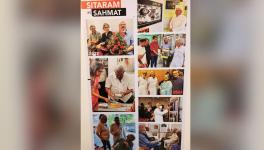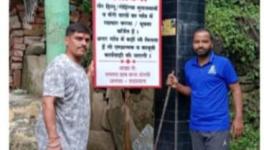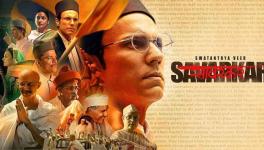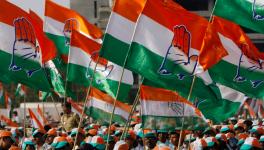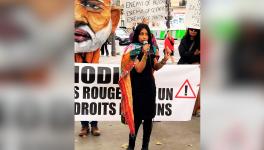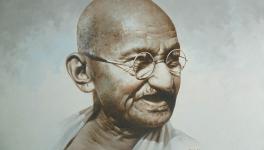Today’s Communalism is Worse Than Pre-Partition Times: MS Sathyu
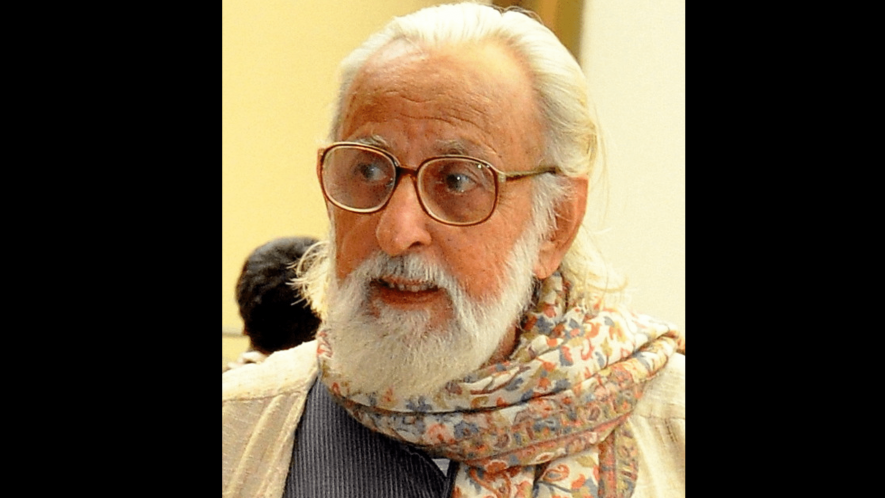
M.S. Sathyu, Indian Film Maker. Image Courtesy: Flickr
On May 25, the Indian People’s Theatre Association (IPTA) completed 80 years of its remarkable journey. Associated with the Left movement, it has maintained a democratic and progressive ethos since the very beginning. IPTA began in 1943 at the Marwari Vidyalaya Hall in Bombay [now Mumbai] and included folk and indigenous art forms in its theatre. It drew its name from the famous French dramatist Romain Rolland’s classic, The People’s Theatre (1903), whose only precursors were the earliest experiments in a theatre for the people.
Well-known film and theatre director, 92-year-old MS Sathyu, who directed the Hindi film classic, Garm Hava (1973), which deals with the pangs of Partition in North India, spoke to independent journalist Arvind Das about how IPTA came to be, his films and the present state of art and politics in India. He is a long-time member and former secretary of IPTA, and one of its patrons, still designing and directing its plays. Edited excerpts from a phone interview.
Arvind Das: How do you look back at the long journey of IPTA?
M S Sathyu: IPTA is the only amateur theatre group in the country which is as old as 80! Running a theatre group and a movement for this long is a very big achievement for any organisation. IPTA has produced a number of stalwarts associated with progressive theatre movements, and it had members from the Progressive Writers’ Association when it began. IPTA started around 1940, and it has been functioning in various parts of the country, especially in Patna, Agra, Mumbai, Kolkata, Kerala, and other places for a long time. It is not doing much in Delhi, but a similar organisation came up in the capital, like [late playwright] Sheila Bhatia’s group [Delhi Art Theatre], which produced very progressive plays and promoted the arts and related activities. Bhatia’s work depended on music, and music has always been a part of IPTA’s repertoire.
AD: What is your topmost memory from the early days of IPTA that you would like to share?
MSS: I have many memories for which a couple of sentences are not enough! Balraj Sahni, Dina Pathak, Habib Tanvir, Shambhu Mitra, Kaifi Azmi and others were part of the movement in its early days. IPTA did not just work as itself—it inspired many other groups that followed the IPTA pattern, like Balraj Sahni’s Juhu Art Theatre Group [in Mumbai] and Dina Pathak’s Natmandal in Ahmedabad. So, this movement had a lot of offshoots and inspired many individuals to start their own groups. They followed the same pattern as IPTA.
AD: Balraj Sahni writes these words in his autobiography, Meri Filmi Atmakatha (My Cinematic Story 1974), about his feelings about his association with IPTA: “And suddenly, my life’s journey has taken a turn whose imprint is indelible. I still feel proud being called an artist of IPTA.” Would you please share your memories of him, especially as Garm Hava has also completed 50 years?
MSS: We had worked together in IPTA and the Juhu Art Theatre group. I knew him (Balraj Sahni) very well personally. I came to IPTA around 1956, and we worked together on stage. We knew each other very well. In that way, it was easy for me to cast him as Salim Mirza in Garm Hava.
AD: Garm Hava is a landmark Partition movie that deals with communalism and identity issues. It is very relevant in contemporary times. How did you come to make this film?
MSS: For nearly 25 years after the Partition, no film-maker attempted a move on the Partition of Punjab. Some projects were rejected by Film Finance Corporation (FCC), but we found a story by novelist Ismat Chughtai, which was immediately accepted. The loan [to produce the movie] was sanctioned by BK Karanjia, then chairman of the FCC. It was a sheer accident that Garm Hava was made. Although most film-makers were from Punjab, they did not want to try making anything on the Partition.
Only [director-producer] BR Chopra perhaps tried to make one film on Partition, Waqt, in 1965. They had suffered immensely during Partition, so they did not want to revisit those experiences or remind themselves of that holocaust. Director Nimai Ghosh made his first film on the Bengal Partition—Chinnamul—and later, Ritwik Ghatak made films on the partitioning of Bengal, too.
AD: How did you get hold of the story of Garm Hava?
MSS: It was an unpublished story that Ismat-apa (Urdu fiction writer Ismat Chughtai), who was very close to my wife, Shama Zaidi, gave to her.
AD: Isn’t it true that no one could have performed better than Balraj Sahni the role of Salim Mirza? The pathos he brings to the screen is palpable.
MSS: Balraj Sahni was a unique actor but never got a national award just because he was a cardholder of the Communist Party. This is a fact, but most people don’t talk about it.
AD: IPTA is a political-cultural organisation, but in today’s India, expressing political views, even in artistic form, is difficult, mainly if they do not favour the current regime. What do you have to say about that?
MSS: The situation in the country has become worse than in pre-Partition times because it is becoming more and more communal. The Hindutva movement has become stronger and is creating a lot of havoc. Only this time, what has happened is that in Karnataka, people have rejected the Bharatiya Janata Party and [its parent organisation], the RSS [Rashtriya Swayamsevak Sangh]. This outcome might influence the Lok Sabha election next year, and there might be a change, for there is a kind of dictatorship going on in this country, and it has become highly communal. The situation is anti-Muslim, anti-dalit, anti any minority.
AD: What role do you see for IPTA in our milieu?
MSS: IPTA is doing a lot of good work. The Patna and Agra groups are doing very well, but it all depends on them sustaining their membership. Running a theatre group is not an easy job. Now, there is the influence of cinema and television, an attraction to these fields which have money, too. So, most people run from theatre towards cinema and television. That is a big danger, but some people are still dedicated and passionate about theatre. Unless there is passion, you cannot do theatre of this kind. Eighty is just a number! If we are able to sustain IPTA’s work for 80 years, it can go on and complete a century. Youngsters are still interested and continuing this kind of work. That continuation is very important. We did what we could; now, it is up to the younger generation to take over. IPTA should inspire the younger generation!
Arvind Das is a freelance journalist.
Get the latest reports & analysis with people's perspective on Protests, movements & deep analytical videos, discussions of the current affairs in your Telegram app. Subscribe to NewsClick's Telegram channel & get Real-Time updates on stories, as they get published on our website.










